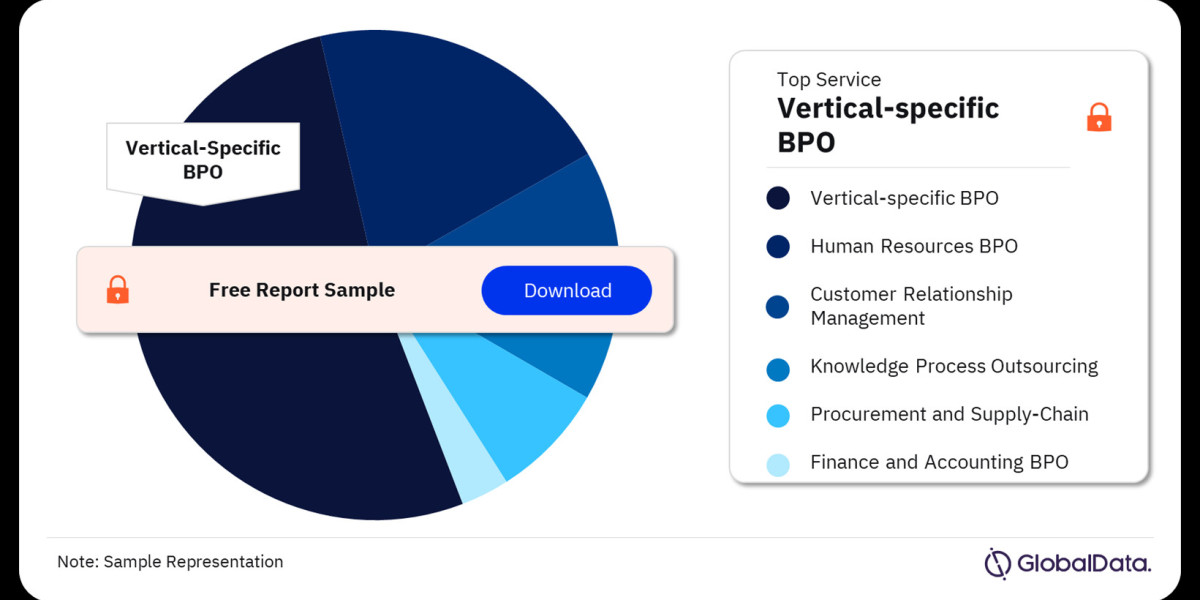The business landscape is constantly evolving, driven by technological advancements, globalization, and a relentless pursuit of efficiency. In this dynamic environment, companies are increasingly turning to Business Process Outsourcing (BPO) to streamline operations, optimize costs, and gain a competitive edge. This article delves into the BPO market, exploring its current size, projected growth, key drivers, and future trends.
Market Size and Growth Trajectory
The BPO market is a colossal industry, with estimates suggesting its global size reached a staggering USD 280.64 billion in 2023 [1]. Various market research reports predict continued significant growth, with a Compound Annual Growth Rate (CAGR) ranging from 8.5% to 9.6% over the next five to eight years [1, 2, 3]. This translates to a projected market size exceeding USD 600 billion by 2032 [3]. This phenomenal growth underscores the BPO market's increasing relevance in today's business ecosystem.
The Compelling Benefits of BPO
The rise of BPO can be attributed to several compelling advantages it offers businesses of all sizes:
Cost Reduction: BPO service providers, often located in regions with lower labor costs, can significantly reduce operational expenses. Companies can outsource tasks like data entry, customer service, or back-office operations, freeing up resources for core business activities.
Enhanced Efficiency: BPO providers specialize in specific processes, leveraging their expertise and economies of scale to deliver efficient and streamlined operations. This translates to faster turnaround times, improved accuracy, and optimized resource utilization.
Focus on Core Competencies: By outsourcing non-core functions, businesses can dedicate more time and resources to their core competencies, the activities that differentiate them in the market. This allows for a sharper focus on innovation, product development, and customer engagement.
Scalability and Flexibility: BPO solutions offer businesses the agility to scale their operations up or down quickly based on market demands. This eliminates the need for significant upfront investments in infrastructure and personnel, allowing for a more adaptable business model.
Access to Expertise: BPO providers often have a deep pool of skilled and experienced professionals with specialized knowledge in specific processes. This allows companies to access expertise they might not have in-house, ensuring high-quality deliverables.
Technological Innovation: BPO providers are at the forefront of technological adoption, utilizing automation, artificial intelligence (AI), and other emerging technologies to improve process efficiency and service quality. Businesses can benefit from these advancements without having to invest heavily in their own technology infrastructure.
Key Market Segments and Services
The BPO market encompasses a wide range of services, broadly categorized into two main segments:
Front-Office BPO: This segment deals with customer-facing processes, such as customer service, telemarketing, sales support, and technical support. Front-office BPO services require strong communication and interpersonal skills to build positive customer relationships.
Back-Office BPO: This segment focuses on internal business processes, including data entry, bookkeeping, accounting, human resources (HR) administration, and payroll processing. Back-office BPO services emphasize accuracy, efficiency, and adherence to data security protocols.
Within these segments, specific service areas are experiencing strong growth:
Customer Relationship Management (CRM): BPO providers offer comprehensive CRM solutions, including customer service, social media management, and email marketing, allowing businesses to build stronger customer relationships.
Content Moderation and Data Entry: With the ever-increasing volume of online content, demand for content moderation and data entry services is booming. BPO providers ensure the accuracy and appropriateness of online content and efficiently manage vast datasets.
Knowledge Process Outsourcing (KPO): This specialized segment offers high-value services such as legal process outsourcing, medical transcription, and research and analytics. KPO requires a highly skilled workforce with deep domain knowledge.
Geographic Landscape and Major Players
The BPO market has a global presence, with established players operating across various regions. Some key markets include:
India: India has emerged as a leading BPO hub, known for its skilled workforce, robust infrastructure, and competitive cost structure.
The Philippines: The Philippines boasts a large pool of English-speaking talent and a strong work ethic, making it a preferred location for many BPO operations.
Eastern Europe: Countries like Poland, Hungary, and Romania offer a cost-effective alternative to Western European markets, attracting BPO businesses with their multilingual workforce and growing talent pool.
The United States: While the US outsources many BPO functions, it remains a significant player in the market, with a focus on high-value KPO services and specialized BPO solutions.
Buy the Full Report for Additional Service-type Insights on the Business Process Outsourcing (BPO) Market, Download a Free Sample



